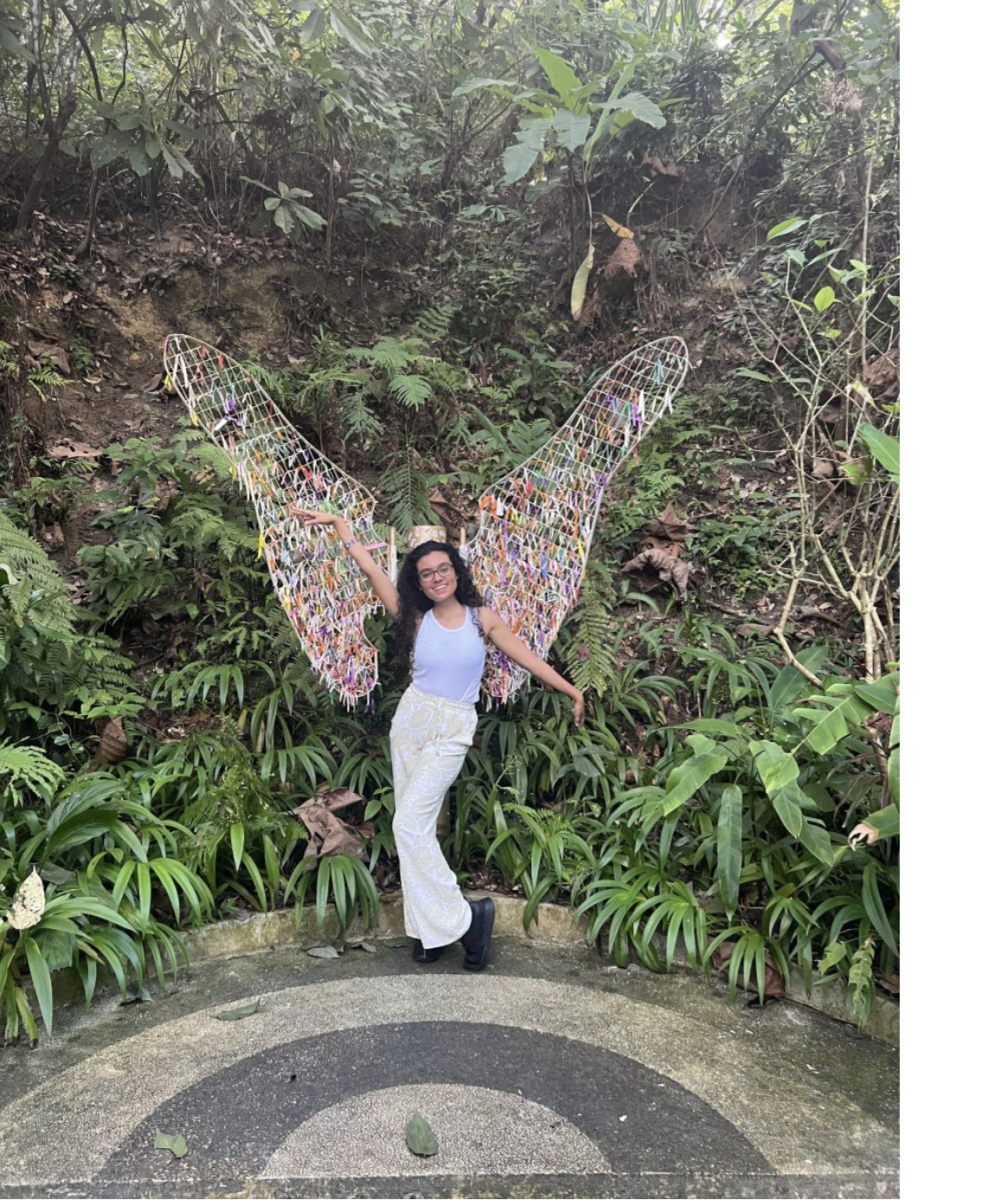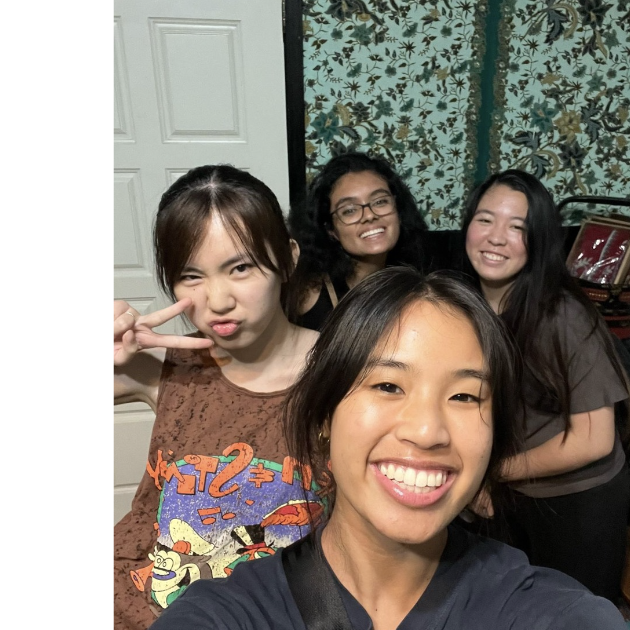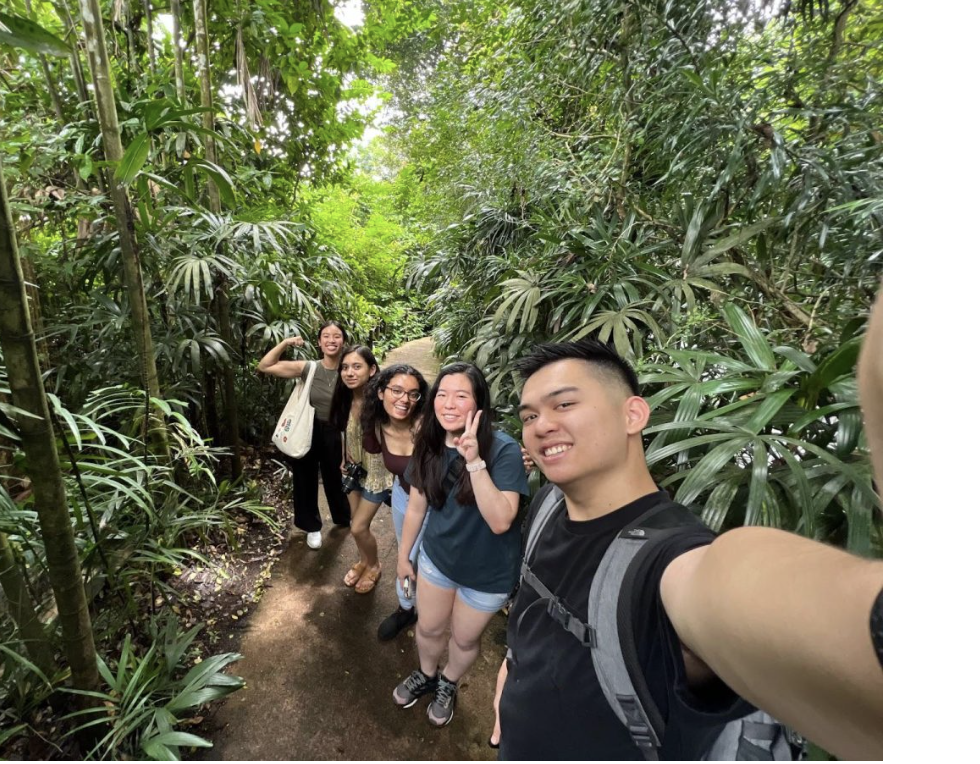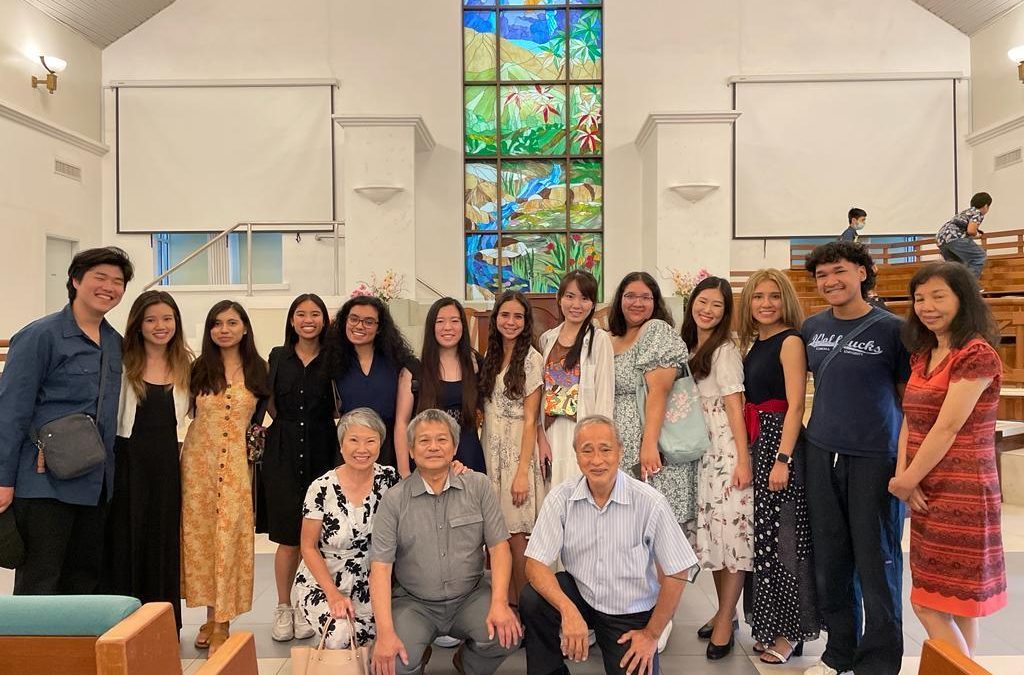I thought I was dreaming when I saw Hadassah at the Kuala Lumpur airport. What felt like hundreds of (in all likelihood it was probably a dozen) women with a Hadassah-like haircut had walked past me in my nine-hour layover from Kerala, India, raising and subsequently lowering my hopes with every false recognition. I fell into a probably uncomfortably long, but for me reality-affirming, hug with Hadassah, then turned and doted on Asia and Heidi. After seeing the entire group, my weariness settled and turned to an exhausted excitement. After all the planning, stressing, driving and flying, I was finally in Malaysia.

Right before coming to Malaysia I stayed with my dad in our family home in Kerala, the first time I had stayed there as an adult. My scholarship project necessitated this visit- I was researching the growing resistance and protest movements happening within my denomination. Leading up to the visit, I was nervous beyond belief about going to India. What if people don’t like me? What if I have a hard time keeping up with everyone? Or worst of all: what if people can tell I’m a foreigner? Though I grew up in this culture, it was inevitably modified by my Americanness. I hated knowing that in most ways I was foreign to my native country, and I, at the time, believed my project amplified that problem immensely. Thinking about having to go to history centers to understand my culture and our traditions felt like an affront to my ancestors’ innate knowledge of it. Though those trips were unexpectedly enjoyable- my dad ended up learning some stuff too–my anxiety about being an outsider never seemed to fully subside. My time in India was only three weeks. Three weeks and I had just settled into the routine of my aunt waking me up with chai and having to use my hair products in a very specific order so that it did not puff up with an unflattering frizz to four times its size. Three weeks and I hadn’t even realized how quickly the time had passed. Three weeks was all it took to immerse myself in the culture and realize I longed to know more.
The first lasting impression I got of Malaysia when we had left the airport to drive to our hotel in Kuching was the structure of the roads and how well people drove. Strange thing to notice, but in three weeks this was the first time I had felt like I was not in a life-or-death scenario every time I got into my seat, unlike when I would drive with my dad in India (that I could write a whole essay about in and of itself). My second impression was of Asia’s wonderstruck face; it was her first time out of the country and she had never driven on the other side of the road before. In some ways, that was the exact moment I knew that this leg of my summer journey was going to be completely different. I began to realize I had to be willing to embrace the role of being a foreigner wholeheartedly. It wasn’t that I was ever resistant to learning about Malaysian culture—quite the opposite, actually—but that I was afraid of being even more of an outsider than I already am. My fears began to settle when I looked around our eclectically decorated bus and realized every other person in it was also new to this culture and country, barring the Chuahs and our tour guides. Though I wish this was something I took the courage to do earlier, I realized that to immerse myself in the culture I had to allow myself to be fascinated by all aspects of it unabashedly.

In embracing my foreignness, I made it a mission to deeply look at and try to understand Malaysian culture in a way I would have been too afraid of doing beforehand. In doing so, I found every single thing around me interesting. I took my role as an outsider as seriously as I would a job, reading every placard around every museum we visited and asking a million questions I would have maybe felt silly asking had I not pushed myself. Dr. Chuah and Ms. Iris, integral components of this trip for us, told us their childhood stories and were avid sharers of their culture. One of my favorite places we visited was the Melaka History and Ethnography Museum. Showcasing a profound history of the colonialism Malaysians fought to rid, I engaged with the Chuahs in one of my most memorable conversations of the trip that both brought to light the rich history of protest there and also the increasingly restrictive nature of modern-day Malaysia. In my hotel room later that night, I remember jotting down ideas that I had connected to my India trip and my scholarship project. Allowing myself to cross-culturally engage with Malaysia gave me an unexpectedly deeper understanding of the idea of what makes up a culture in the first place. With the Indian and Chinese cultures hyper-present in the region, it was insightful to look at the formation of communities. In a funny and convoluted way, I realized that my approach to Malaysia was fruitful; in letting myself be a curious foreigner, I began to understand my Indian heritage better. Seeing the rich Indian history present in communion with other Asian influences, I understood the context of my scholarship project immensely more.

When we dropped Hadassah off in Taiwan, I began to realize this trip truly was coming to an end. My time in Malaysia was only three weeks. Three weeks and I had just settled into the routine of noticing every detail around me, trying to memorize it all, and running to the bus because I had snoozed my alarm three times. Three weeks and I hadn’t even realized how quickly the time had passed. Three weeks was all it took to immerse myself in the culture and realize I longed to know more.
—Elizabeth Paul, Class of 2024: Biology/Pre-medicine

